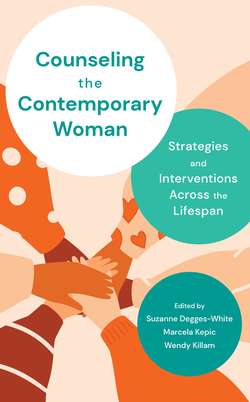Читать книгу Counseling the Contemporary Woman - Suzanne Degges-White - Страница 12
На сайте Литреса книга снята с продажи.
Religion and Spiritual Orientation
ОглавлениеReligion and spirituality play an important role in culture and identity. A national survey (Pew Research Center, 2015a) indicates that 77 percent of participants identified religion as somewhat to very important in their lives. This is particularly relevant as gender roles and expectations are often shaped by religious doctrine and mores. This can include restricted gendered roles in religious service (e.g., nuns and priests) or day-to-day norms regarding male-dominated household structures and expectations of women’s modesty, sexuality, and reproductive decision making. Frame (2003) suggests that spirituality encompasses “values, beliefs, mission, awareness, subjectivity, experience, sense of purpose and direction, and a kind of striving toward something greater than oneself. It may or may not include a deity” (p. 3). In contrast, religion is more closely aligned with a more structured experience of spirituality, dogma, rituals, and communal expectations. Although frequently merged into a single category, religion and spirituality are distinct components of identity, which may or may not be congruent for different individuals. In a sample of low-income, rural women, Gill, Barrio Minton, and Myers (2010) found high correlations between spirituality and religiosity; combined, spirituality and religiosity accounted for nearly 40 percent of total variance in wellness. While some women may experience frustration with religion-based gender roles and expectations, others find a sense of purpose in them.
